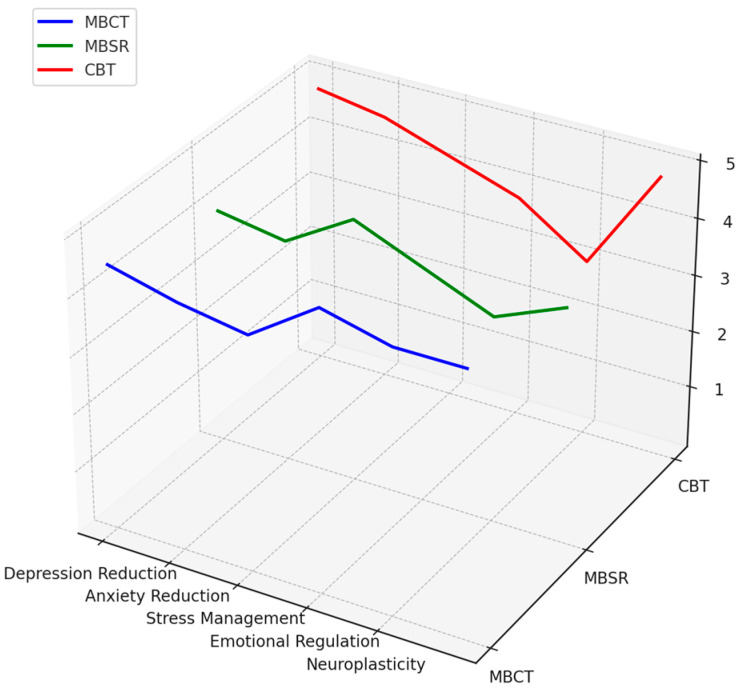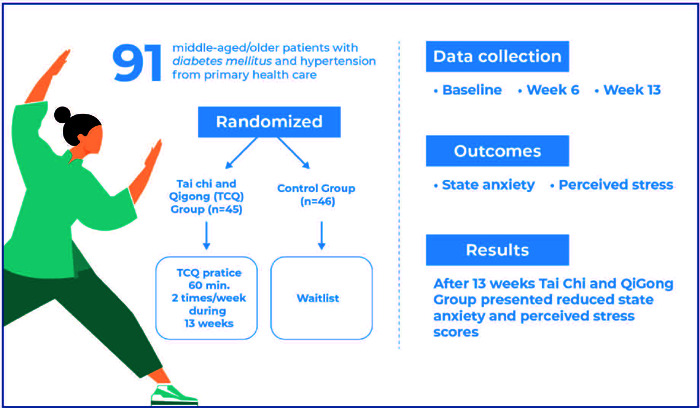
By John M. de Castro, Ph.D.
In today’s Research News article “The Effectiveness and Safety of Tai Chi on Knee Pain: A Systematic Review and Meta-Analysis” (See summary below or view the full text of the study at: https://pmc.ncbi.nlm.nih.gov/articles/PMC12249842/) Lee and colleagues reviewed, summarized, and performed a meta-analysis of the published research studies investigating the effectiveness of Tai Chi practice for the relief of knee pain. They report that Tai Chi significantly reduced knee pain but not more so than physical therapy and resistance training.
Reduce knee pain with Tai Chi practice.
CMCS – Center for Mindfulness and Contemplative Studies
This and other Contemplative Studies posts are also available on the Contemplative Studies Blog http://contemplative-studies.org
Study Summary
Lee H, Sung SH, Lee S. The Effectiveness and Safety of Tai Chi on Knee Pain: A Systematic Review and Meta-Analysis. Healthcare (Basel). 2025 Jul 6;13(13):1615. doi: 10.3390/healthcare13131615. PMID: 40648639; PMCID: PMC12249842.
Abstract
Background/Objectives: Although Tai Chi has shown potential benefits for managing chronic pain, its clinical effectiveness specifically for knee pain remains inconclusive. Methods: We systematically searched ten electronic databases for randomized controlled trials (RCTs) investigating the effects of Tai Chi on knee pain. Results: This systematic review and meta-analysis included 11 RCTs involving 706 participants; among them, three studies (n = 169) were eligible for meta-analysis. A comprehensive search of ten electronic databases was conducted up to March 2025. The included RCTs were conducted in the United States (n = 5), China (n = 3), South Korea (n = 2), and Turkey (n = 1). Compared to health education, Tai Chi significantly improved knee pain, as measured using the Western Ontario and McMaster Universities Osteoarthritis Index (WOMAC) pain score (mean difference (MD) = −0.60; 95% CI: −6.52 to −3.28; p < 0.00001) and the Visual Analogue Scale (VAS) (MD = −1.44; 95% CI: −1.95 to −0.93; p < 0.00001). Tai Chi also significantly improved knee function compared to health education (WOMAC function score—MD = −13.49; 95% CI: −17.11 to −9.87; p < 0.00001). Four RCTs comparing Tai Chi with no intervention reported favorable effects on knee pain and function; however, a meta-analysis was not possible due to limited data. In contrast, two studies comparing Tai Chi with active controls, such as physical therapy and resistance training, found no significant differences in pain or functional outcomes. Two studies reported increased knee pain during initial Tai Chi sessions, but no adverse events occurred after postural corrections. Conclusions: While Tai Chi appears promising for knee pain management, further large-scale, high-quality RCTs with rigorous methodology are needed to establish definitive evidence.







